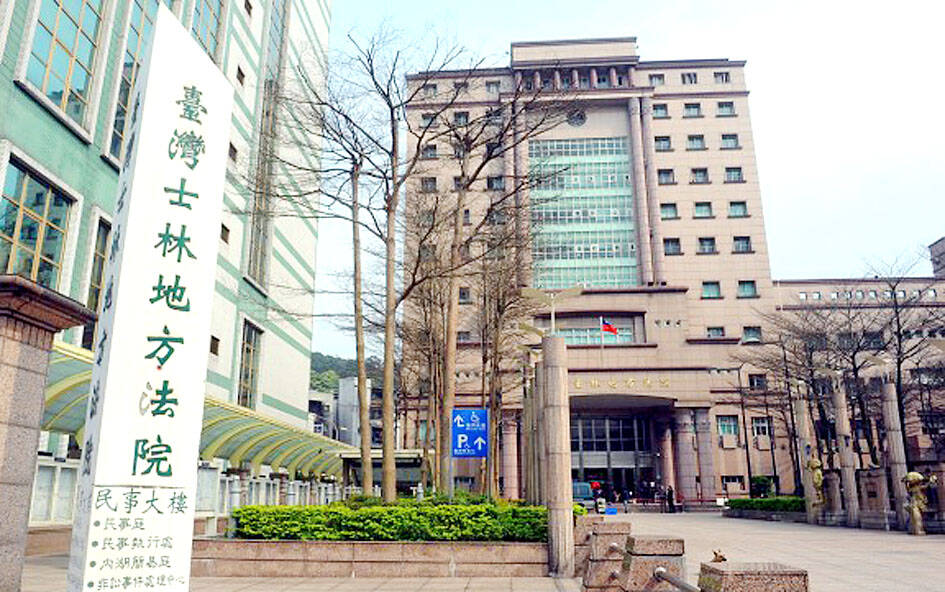Justice officials have proposed amending the law on minor graft offenses to grant deferred prosecution or more lenient sentences, after people criticized public prosecutors for pressing charges against a trash collector who gave a rice cooker he found discarded to an elderly woman.
Much of the public anger was directed at the Taipei Shilin Prosecutors’ Office, who charged a trash collector surnamed Huang (黃) with corruption, saying he misappropriated an old, used rice cooker when he gave it to an elderly woman who scavenges garbage for a living.
Recyclers estimated that the rice cooker only had a remaining monetary value of NT$32.

Photo: Taipei Times
Huang in July found a rice cooker while collecting trash, which he took home. As it still worked, he gave it to the woman so she could use it to prepare meals.
After an investigation, Shilin prosecutors last week charged Huang with breaching Article 6 of the Anti-Corruption Act (貪污治罪條例), or “stealing or misappropriating private property or equipment that is in his or her possession due to official position but not for official use,” as trash collectors are city employees.
Prosecutors asked the court for a lenient sentence, as Huang admitted to giving the woman the rice cooker and his offense was deemed to be very minor.
Ministry of Justice officials on Saturday issued a statement saying that they were aware of the case and are open to feedback from all sectors, adding that they had proposed an amendment where those with “minor corruption offenses” could apply for a reduced term or suspended sentence.
The ministry said it has also begun examining legal scopes and procedures to better define the criteria for a deferred prosecution, so prosecutors could have more flexibility when assessing cases.
Meanwhile, Cho Hsin-chen (卓昕岑), who is in charge of Huang’s trash collection unit in Taipei’s Beitou District (北投), said that the regulation against taking recyclable materials during trash collection for personal use is well known and had been drilled into all personnel.
Cho said he also gave Huang one demerit.
Huang has been a model employee for more than 30 years and was known as a serious worker, not contravening rules nor engaging in unlawful activities, he said, adding that Huang later felt remorse for his actions.

The first global hotel Keys Selection by the Michelin Guide includes four hotels in Taiwan, Michelin announced yesterday. All four received the “Michelin One Key,” indicating guests are to experience a “very special stay” at any of the locations as the establishments are “a true gem with personality. Service always goes the extra mile, and the hotel provides much more than others in its price range.” Of the four hotels, three are located in Taipei and one in Taichung. In Taipei, the One Key accolades were awarded to the Capella Taipei, Kimpton Da An Taipei and Mandarin Oriental Taipei. Capella Taipei was described by

EVA Airways today confirmed the death of a flight attendant on Saturday upon their return to Taiwan and said an internal investigation has been launched, as criticism mounted over a social media post accusing the airline of failing to offer sufficient employee protections. According to the post, the flight attendant complained of feeling sick on board a flight, but was unable to take sick leave or access medical care. The crew member allegedly did not receive assistance from the chief purser, who failed to heed their requests for medical attention or call an ambulance once the flight landed, the post said. As sick

The Taichung District Court yesterday confirmed its final ruling that the marriage between teenage heir Lai (賴) and a man surnamed Hsia (夏) was legally invalid, preventing Hsia from inheriting Lai’s NT$500 million (US$16.37 million) estate. The court confirmed that Hsia chose not to appeal the civil judgement after the court handed down its ruling in June, making the decision final. In the June ruling, the court said that Lai, 18, and Hsia, 26, showed “no mutual admiration before the marriage” and that their interactions were “distant and unfamiliar.” The judge concluded that the couple lacked the “true intention of

INDUSTRY: Beijing’s latest export measures go beyond targeting the US and would likely affect any country that uses Chinese rare earths or related tech, an academic said Taiwanese industries could face significant disruption from China’s newly tightened export controls on rare earth elements, as much of Taiwan’s supply indirectly depends on Chinese materials processed in Japan, a local expert said yesterday. Kristy Hsu (徐遵慈), director of the Taiwan ASEAN Studies Center at the Chung-Hua Institution for Economic Research, said that China’s latest export measures go far beyond targeting the US and would likely affect any country that uses Chinese rare earths or related technologies. With Japan and Southeast Asian countries among those expected to be hit, Taiwan could feel the impact through its reliance on Japanese-made semi-finished products and